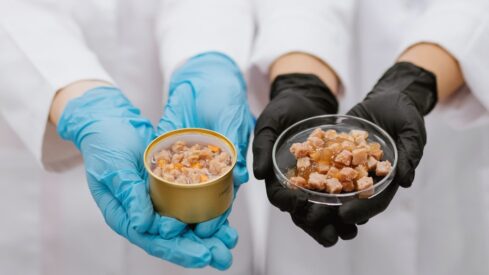Bene Meat bags government innovation award amid cultivated meat production increase in 2025

The Czech-headquartered biotech player aims to become the world’s largest producer of cultivated raw meat materials.
Bene Meat Technologies (BMT) has received the Industrie Award, which the Czech government gives to local scientists to acknowledge innovation and technology. The award, given annually since 2022, recognizes the most significant innovations nationwide.
The biotechnology startup received the award for its research on cultivated meat applications in pet food.
BMT’s achievements include being the first in the world to register its “cultivated cells of mammalian origin” as a feed ingredient, placing it alongside global leaders in cultivated meat technology.
Production increase
BMT announced that it intends to increase its production capacity to 500 kg per day by 2025, allegedly making it the world’s largest producer of raw materials for cultivated meat.
“We expect this to generate revenue in the low tens of millions of CZK,” says CEO Roman Kříž.
The timeline for this target is not fixed, but GlobalPETS learned that it is expected to be around H2 2025. Kříž notes that the final data will depend “on many factors,” including the flexibility of hardware suppliers and BMT’s development team.
A sustainable solution
BMT recently collaborated with the Czech Technical University in Prague to conduct a life cycle assessment (LCA) study to evaluate the environmental footprint of cultivated meat production.
According to the company, the study found that only 3.1 square meters of land is required to produce 1 kg of cultivated meat, compared to significantly higher requirements for traditional livestock.
Furthermore, cultivated meat totals 5.28 kg of carbon dioxide equivalent emissions per kilogram. This is significantly less than beef farming, which is estimated at between 20 to 100 kg of carbon dioxide equivalent emissions per kilogram of meat.
“We believe that this study marks a key milestone in understanding the environmental impacts of cultivated meat and confirms its potential as a sustainable source of protein,” says Tomáš Kubeš, Head of Strategic Projects at BMT.
